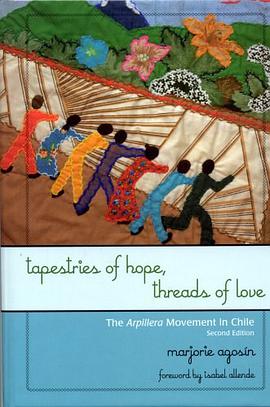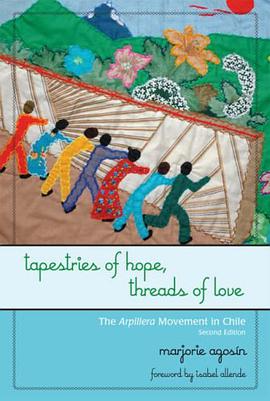

具体描述
Tapestries of Hope, Threads of Love tells the story of ordinary women living in terror and extreme poverty under General Pinochet's oppressive rule in Chile (1973-1989). These women defied the military dictatorship by embroidering their sorrow on scraps of cloth, using needles and thread as one of the boldest means of popular protest and resistance in Latin America. The arpilleras they made_patchwork tapestries with scenes of everyday life and memorials to their disappeared relatives_were smuggled out of Chile and brought to the world the story of their fruitless searches in jails, morgues, government offices, and the tribunals of law for their husbands, brothers, and sons. Marjorie Agos'n, herself a native of and exile from Chile, has spent more than thirty years interviewing the arpilleristas and following their work. She knows their stories intimately and knows, too, that none of them has ever found a disappeared relative alive. Even though the dictatorship ended in 1989 and democracy returned to Chile, no full account of the detained and disappeared has ever been offered. Still, many women maintain hope and continue to make arpilleras, both in memory and as art. This new edition of the book, updated for students, includes a reaction to the death of General Pinochet, a chronology of Chile, several new testimonies from arpilleristas in their own words, and an introduction by Peter Kornbluh. It retains a section of full-color plates of arpilleras, an afterword by Peter Winn, and a foreword by Isabel Allende. Students and interested readers will find the arpilleras beautiful, moving, and ultimately hopeful, and the testimonies a powerful way to learn about the history of contemporary Latin America and the arpillera movement in Chile.
作者简介
目录信息
读后感
评分
评分
评分
评分
用户评价
相关图书
本站所有内容均为互联网搜索引擎提供的公开搜索信息,本站不存储任何数据与内容,任何内容与数据均与本站无关,如有需要请联系相关搜索引擎包括但不限于百度,google,bing,sogou 等
© 2026 onlinetoolsland.com All Rights Reserved. 本本书屋 版权所有




















